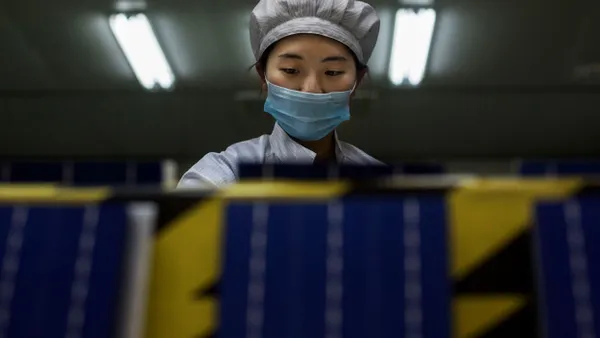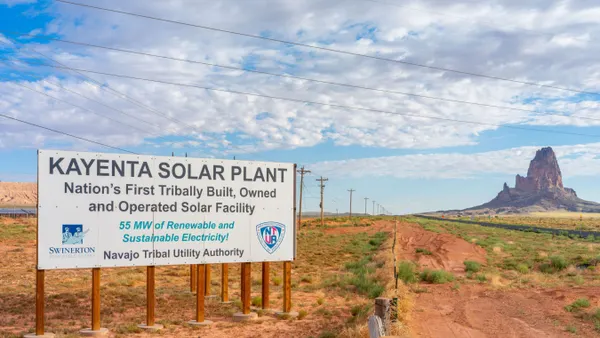Dive Brief:
- Sen. Chuck Grassley (R-Iowa), a perennial supporter of wind energy, has sent a letter to the U.S. Department of Energy questioning the methods and assumptions behind a review of the electric grid ordered last month.
- In April, Secretary of Energy Rick Perry ordered a report be developed to ascertain whether policies to boost renewable energy are hastening the retirement of coal and nuclear plants and threatening power reliability.
- But some observers say President Trump's statements on the campaign trail mean the results have been pre-determined, and Grassley questioned whether or not a rigorous review of the topic could be completed so quickly.
Dive Insight:
Wind energy is big business in Grassley's home state of Iowa, generating more than 35% of the state's electricity last year.
Now the senator, known for his defense of the wind production tax credit, has sent a pointed letter to Secretary Perry expressing concern about possible weaknesses in the government's study.
“I’m concerned that a hastily developed study, which appears to pre-determine that variable, renewable sources such as wind have undermined grid reliability, will not be viewed as credible, relevant or worthy of valuable taxpayer resources,” Grassley wrote in the letter, dated yesterday.
The White House called for the baseload power review in a climate where a number of states have moved to subsidize generation, particularly nuclear plants, that cannot compete with cheap natural gas and renewable energy in wholesale power markets. But given that President Trump vowed often on the campaign trail to help revitalize the coal industry, some observers say the results of the government's study seem pre-ordained.
"There are very serious questions that do need to be addressed here," energy analyst Alex Gilbert, co-founder of Spark Library, told Utility Dive last month. But he added that the Trump administration "has a huge credibility problem. ... this is a very clear example of how the toxic nature of environmental policy and electricity regulation is potentially harming other efforts to design a better system."
"The President said he wanted to try and save coal," said Jim Lazar, a senior advisor at the Regulatory Assistance Project. "If I thought it was an objective review I would certainly welcome it."
The DOE baseload study comes as the Federal Energy Regulatory Commission also investigates the impacts of state subsidies on the power grid. At the beginning of this month, FERC hosted a technical conference on integrating state goals in markets, with stakeholders finding tentative consensus around a need for a carbon price.
Grassley's ended his letter with five questions, including who would complete the study, how much it would cost and whether DOE would take comment on a draft version. The senator requested a response from DOE by May 25; the baseload study is expected out next month.














